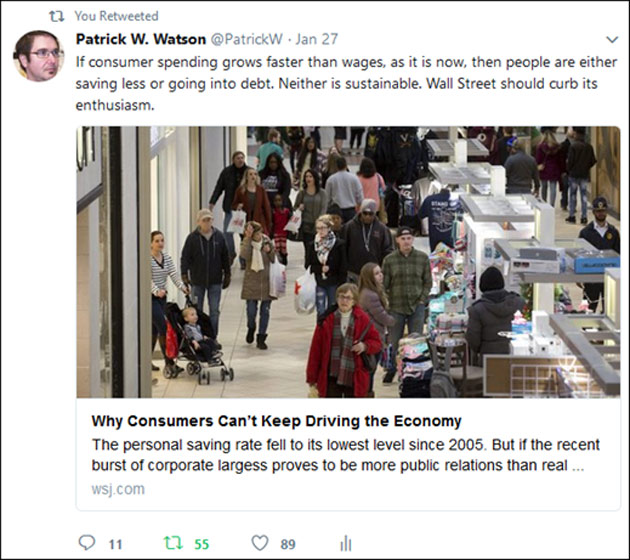
Robots and AI are coming for your job. And if you’re already retired, they’re still coming for your kids.
We can try to slow down this process—or at least ease the pain it causes—but I doubt we can stop it. And we probably shouldn’t, because a brighter future awaits on the other side.
So how to get there intact? Make the most of your most valuable asset: your brain. It’s capable of things even the most advanced artificial intelligence still can’t do.
But AI is gaining fast. We have no time to waste, so let me give you some ideas.

Photo: Getty Images
Straight Talk
Billionaire and Dallas Mavericks owner Mark Cuban is a straight talker. Last year, I saw him at the South by Southwest Conference, and he said something that stuck with me.
The moderator asked him what subjects young people should study to gain an advantage in the future. Cuban said:
We are going through the process where software will automate software, automation will automate automation. I would not want to be a CPA right now. I would not want to be an accountant right now. I would rather be a philosophy major. Knowing how to critically think and assess them from a global perspective I think is going to be more valuable than what we see as exciting careers today, which might be programming or CPA or those types of things.
That advice goes against the grain. Career counselors tell students to learn computer skills, know how to “code” in the latest hot software language. Cuban thinks that is short-sighted because whatever technical skills you acquire, they will get obsolete quickly.
But does it make sense to study philosophy, one of the most impractical fields? Everyone knows philosophy majors never make any money.
Or do they?
Carl Icahn’s philosophy degree served him well. Ditto for Peter Thiel, George Soros, former HP CEO Carly Fiorina, Overstock.com founder Patrick Byrne, and Legg Mason fund manager Bill Miller. All have philosophy degrees or advanced studies.
Basketball coach Phil Jackson is a philosopher too. Maybe he gave Cuban the thought.

Photo: Getty Images
It’s true that some branches of philosophy are esoteric, to say the least. But at the core, it’s about thinking logically and critically—a valuable skill in any career.
Furthermore, the logical principles that drive most software code came from philosophers. Knowing them can be useful, but to beat the bots, you need more.
By the Numbers
I was one of those kids who hated math, but later I realized its importance. Math teaches logical reasoning and attention to detail, and it helps you think under pressure. Finding that one possible solution can be hard—but doing it will increase your mental endurance.
Math is about structure, developing principles that hold true even if you change the components. That’s helpful in economic analysis.
For instance, here’s something I tweeted last weekend.

https://twitter.com/PatrickW/status/957274172400553984
What I described in the tweet is really a mathematical formula. The variables are consumer spending, wage growth, savings rate, and consumer debt. They all relate to each other and can only move certain ways.
Math helps at any age, and you don’t need a degree to benefit from it. Just some free online math study at Khan Academy will make you a better thinker—and help you survive job automation. It also might increase your income.

Photo: Getty Images
Language Differences
In one sense, math is the language of technology. Computers “think” in ones and zeros. But human languages count too.
When people study a foreign language, it’s usually because they want to speak or read it. However, the study is useful even if you never gain fluency.
For one thing, learning about another language helps you understand your own language better. Since languages shape how we think, you’ll also gain insight into the mentality of the other language’s native speakers.
Chinese, for instance, doesn’t use verb tenses to denote past, present, and future. It’s no coincidence that many Chinese-speaking people conceive of “time” quite differently from English speakers. Knowing this helps explain some things.
English has its peculiarities as well. Because we lack gender-neutral pronouns but want to be inclusive, we say “he or she” to describe a person of unknown gender. That’s awkward, and resentment of it has affected our politics and economy.
(Incidentally, the Associated Press decided last year “they” is acceptable for singular, gender-neutral references. I think that’s even worse.)
Studying another language helps your brain recognize those differences. This makes your thinking more flexible and widens the opportunities you can seize.

Photo: Getty Images
Explore New Concepts
The three fields I just described—philosophy, math, and foreign languages—together form a great foundation for learning almost anything. Familiarity with them will equip you to compete against automation in this rapidly changing economy.
-------------------------------------------------------------
*Patrick Watson is senior economic analyst at Mauldin Economics. This article is from a regular Mauldin Economics series called Connecting the Dots. It first appeared here and is used by interest.co.nz with permission.
14 Comments
I wonder how my often-clouded-thinking mind might compete with some future robot's calculating/computing componentry. Humanity's hope of dominance may lie in the tendency for computers to become more and more vulnerable to failures as they grow ever more complex.
Have a read of Gary Kasparov's recent book 'Deep Thinking. He has some very interesting discussion on the role of Artificial Intelligence and humans working together. Also, he does a great job of making the story of his eventual loss to IBM an absolutely fascinating read. Excellent book.
Love the ref, had a bit of a laugh at that one.
No need to worry about that AI gets programmed with human biases added right on in. GIGO
A broad education in other words. I've always argued for this.
The humanities are woefully undervalued in this country, yet they inform the STEM subjects. To be a good scientist/engineer is ho-hum. To be a great scientist/engineer, or great anything, requires imagination - the ability to think originally or creatively. Philosophy, history, and other humanity subjects don't just teach critical thinking skills, but ethics too.
Right now our high school commerce departments are bursting at the seams, but students selecting humanity subjects are discouraged by their parents who have chronic FOMO. Good article.
Agree - I've been meaning to have a look around for research on the role of philosophy in innovation and why innovation has been so much more prevalent in some cultures than others (vs. say, imitation rather than innovation). It's sort of a gut suspicion that philosophy and the development of a culture of questioning the status quo and questioning authority is critical to a culture of innovation - which would suggest that authoritarian cultures wouldn't naturally be cradles of innovation.
That's part of it, but I think its much simpler than that. Innovation happens when people are properly incentivised and given the freedom to do it. The science behind innovation/motivation emphatically suggests that paying bonuses to people for any kind of cognitive task doesn't work. It's actually counterproductive. Yet that's how most NZ businesses operate.
What actually does work is to pay people enough money to take the issue of money off the table. Give them an objective, but (and this is the important part) give them autonomy as to how they get there. That's when they innovate. My uncle was a Royal Marine Commando during WW2 and that's how they operated, yet he grew up an unwanted child.
Agreed. And this among many reasons is why we have to get house prices down to affordable levels, or dramatically boost wages.
All too true, to be a creative STEM thinker is often one that develops new tech and to be breaking barriers in research. The pity is creativity is often to be assumed as solely a domain for artists and designers in the non STEM general public minds. I remember a talk given to high school girls at a mostly religious school who had grown up with 'the big bang theory' tv show influencing their understanding of social norms. The talk was about breaking stereotypes not only socially, (dropping the autistic male geek characterisation), but also around scientific and engineering creativity and the many groundbreaking technical solutions developed in even the past decade. (Hence the talk was quite different to the usual become a breeder as your genetic destiny sessions). Unfortunately though for all importance of the STEM fields, anti-intellectualism and distancing from mathematics and scientific research is a very large and exponentially growing trend. Hopefully by then the AI would be better at directing engineering creativity by then. There are already great strides in creative AI development.
However ethics & understanding about philosophic & logical fields in STEM fields is actually higher than than in the main population. Not just because of the necessity but because it is core. They don't need more humanities papers, they are inclusive of ethics, critical thinking and philosophy already, (check the subjects, courses & legal requirements). It is the rest of the population which needs the ethics training and unfortunately you will not see that improve for a very long time.
Agreed. As the daughter of an engineer and granddaughter of a scientist I saw first-hand the creative solutions they applied to their work. Unfortunately as you say, the idea has taken hold in schools and in the heads of many of our parents and politicians that the two are mutually exclusive. So its at the home and school level that the work needs to be done to break down those erroneous perceptions.
... this article backs up what Sir Bob Jones has said for yonks ... that we need more students to study philosophy , to develop critical thinking ....
Proof of the pudding ? ... how'd it work out for him , the super mega multimillionaire .... hmmmmm !
Thumb down!
No Te reo Maori in the last picture !
Great article! Thanks.
I realised quite sometime ago there was a direct correlation between the intelligent folks and their memory, that's what intelligence is (being able to recall information rapidly and repeat it articulately).
Now computers are capable of this more effectively & efficiently than humans.
However computers lack emotions, feelings, & thoughts (I doubt they have dreams or aspirations either). While I can't wait for a robot to clean my house & mow my lawns & cook my meals. I'll just have to keep thinking & feeling & sleeping on it.

We welcome your comments below. If you are not already registered, please register to comment
Remember we welcome robust, respectful and insightful debate. We don't welcome abusive or defamatory comments and will de-register those repeatedly making such comments. Our current comment policy is here.